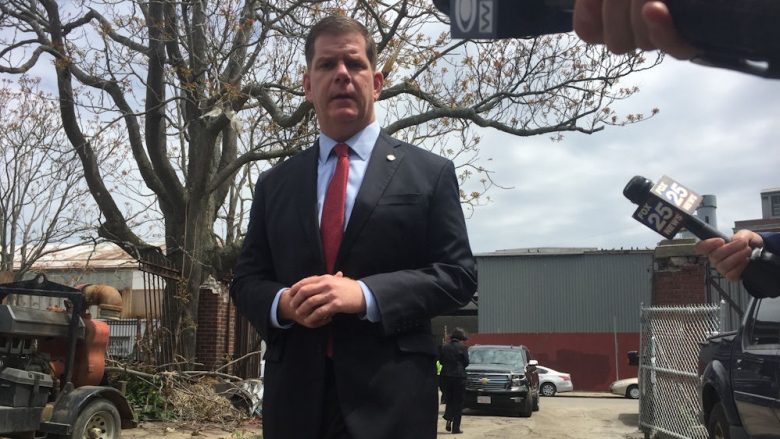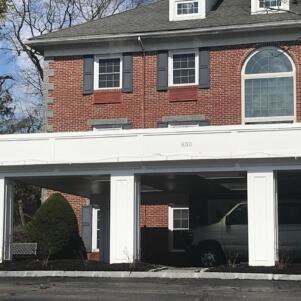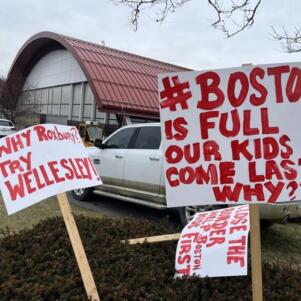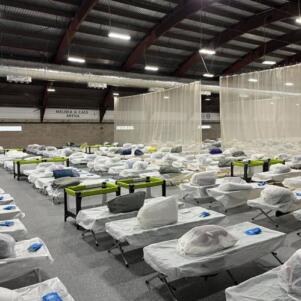Boston Mayor To Allow Thin-Film Plastic Bags During Corona-Crisis
By Matt McDonald | March 25, 2020, 22:11 EDT
 Boston Mayor Marty Walsh speaks to reporters in East Boston on May 19, 2016. State House News Service Photo by Andy Metzger.
Boston Mayor Marty Walsh speaks to reporters in East Boston on May 19, 2016. State House News Service Photo by Andy Metzger. Boston Mayor Marty Walsh is temporarily allowing stores in the city to offer thin-film plastic bags to their customers during the coronavirus emergency.
The mayor’s executive order does not say why allowing the plastic bags is a good idea, but government officials elsewhere have suggested that the reusable bags that many shoppers in certain jurisdictions nowadays bring into stores from their homes or cars may spread the virus, and that thin-film bags provided by a store to its customers on a one-time basis may be safer.
The order justifies allowing plastic bags because “grocery stores and other entities that provide food, medicine, and other necessities, may require additional flexibility in providing checkout bags or in acquiring supplies of bags to use to facilitate carry out or checkout by patrons …”
Walsh keyed in on the flexibility theme in a public statement on his new order.
“During this challenging time, we understand the retail establishments our residents rely on – like grocery stores, pharmacies, and restaurants – need added flexibility to best serve their customers,” Walsh said in a written statement Wednesday, March 25. “We are adjusting Boston’s plastic bag ordinance to give establishments and residents the help they need during this time.”
Boston has one of the most restrictive policies on checkout bags in the Massachusetts, because of an ordinance Walsh signed in December 2017 (after the city council passed it) that took effect in December 2018. Stores in Boston ordinarily can’t provide thin-film plastic bags and can provide thicker plastic bags meant for multiple uses only if they charge at least a nickel a bag for them, according to the ordinance.
Grocery stores and drug stores are considered essential businesses during the coronavirus emergency so people can get food and medicine, but they are also potential places to spread the virus. Store workers have expressed worries that they’ll get the virus from customers.
Massachusetts cities and towns have varying policies on thin-film plastic bags. Some allow them and some ban them. The city of Newton bans thin-film plastic bags and also requires stores to charge their customers 10 cents for a paper bag.
Supporters of banning thin-film plastic bags argue that they harm the environment. Opponents doubt that, and they decry the inconvenience and added expense for businesses store customers.
Walsh’s temporary order allowing thin-film plastic bags in Boston is dated Tuesday, March 24. It is in effect for as long as the public health emergency declared by the city’s Public Health Commission remains in effect.
The commission declared a public health emergency in Boston on Sunday, March 15.










